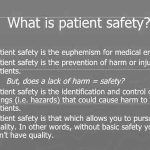The Role of Patient Education in Preventing Opioid Misuse

The alarming global crisis of drug abuse, notably involving opioids, is a multifaceted health issue with profound personal, societal, and economic repercussions. This predicament primarily stems from the incorrect use and addiction to this specific class of pain-relieving drugs. Counteracting this crisis and preventing opioid misuse requires a comprehensive approach, with patient enlightenment taking center stage.
The Indispensable Role of Patient Enlightenment
In the healthcare spectrum, patient education is the process through which health professionals relay information to patients about their health conditions, treatment choices, and methodologies to manage illnesses. It is a foundational element in healthcare provision that directly influences a patient’s comprehension, treatment adherence, and health outcomes.
When combating the misuse of pain-relieving drugs, enlightening patients is instrumental. A well-informed patient can make appropriate decisions about their pain management, comprehend the risks of using these medications, and identify early signs of misuse.
Enlightening Patients: A Comprehensive View
To diminish the risks associated with these pain-relieving drugs, healthcare providers must instill knowledge in patients about the medication, their usage, potential risks, alternatives, and safe disposal procedures. This enlightenment initiative should commence before the prescription is written and continue even after it has been filled.
Comprehending the Medication
Patients need to understand what these pain-relieving drugs are and how they function. They should be aware that these substances interact with their nervous system to mitigate pain sensations. Nevertheless, cautionary notes from Harmony Ridge Recovery highlight that these substances can activate the brain’s reward system, inducing a euphoric sensation that may culminate in dependence and addiction.
Potential Risks and Red Flags
It is essential for patients to be aware of the potential risks associated with the use of these medications, including dependence, overdose, and illicit use. Understanding the red flags of misuse, such as uncontrollable cravings, inability to fulfill obligations, withdrawal symptoms, and escalated consumption, is crucial for early detection and management.
Medication Alternatives
Patients should be aware that these drugs aren’t the only remedy for managing pain. Knowledge about alternative pain management options should be shared, like physical therapy, behavioral therapy, over-the-counter medications, and non-opioid prescription drugs.
Safe Disposal of Unused Medication
Patients must be guided on safe disposal methods for unused medication to prevent them from falling into the wrong hands.
Strategies for Patient Enlightenment
Implementing patient education in preventing opioid misuse requires concerted efforts from healthcare providers, health systems, policymakers, and communities. The following strategies could aid in achieving this:
- Making educational resources easily accessible: Supply materials detailing the risks, safe use, and disposal of these drugs
- Conducting regular follow-ups: Consistent check-ins can help monitor a patient’s progress and identify potential issues
- Offering alternatives: Provide patients with non-opioid pain management options.
- Providing personal support: Encourage open communication, allowing patients to discuss their concerns comfortably
Enhanced Understanding through Interactive Learning
Utilizing interactive learning methods can significantly improve the effectiveness of information transmission concerning the proper use of narcotics, particularly those intended for pain relief. Interactive teaching methods, such as workshops and online modules, can provide practical insights into the safe use of these potent substances.
Role-Play Scenarios
Role-playing scenarios can allow individuals to comprehend the consequences of incorrect drug usage better. These scenarios could illustrate the development of dependence, how to resist pressure to misuse medication, or how to respond when misuse signs become apparent.
E-learning Platforms
Digitized learning platforms can offer engaging, flexible, and easily accessible ways to educate individuals about the appropriate use of these potent drugs. Interactive quizzes and video content can be used to highlight key learning objectives and reinforce knowledge.
Role of Family and Caregivers
The circle of care around an individual is integral to drug misuse prevention. Family members and caregivers are critical in supporting safe medication practices, recognizing early warning signs of misuse, and assisting in treatment adherence. Training these individuals can further enhance the efficacy of preventive efforts.
Caregiver Training
Programs can be designed to train caregivers on the safe storage and disposal of narcotics, how to administer medication correctly, and steps to take if misuse is suspected. These programs can equip caregivers with the necessary tools to prevent abuse before it starts.
Family Awareness Sessions
Awareness sessions for family members can emphasize the dangers associated with improper drug usage and guide on creating a supportive environment that discourages misuse. Such sessions can foster open dialogue about the risks and realities of painkiller misuse.
Supportive Technologies
Emerging technologies can provide additional support in preventing opioid misuse. Digital health tools, such as mobile apps and telemedicine platforms, can aid in monitoring treatment adherence, managing pain levels, and providing continuous education.
Mobile Applications
Healthcare mobile applications can help track medication usage, send reminders for medication times, and even alert healthcare providers of potential misuse. These applications can also provide easy access to educational resources and professional help when needed.
Telemedicine
Telemedicine services can provide patients with easy access to healthcare providers for advice and support. Regular virtual check-ins can help healthcare professionals monitor patient progress, answer questions, and detect signs of misuse early on.
The Community’s Role
Communities can play a significant role in prevention efforts. Community awareness programs can disseminate valuable information on drug misuse and available resources for help. School-based educational programs can instill knowledge about drug misuse at a young age, fostering a community environment that discourages such behavior.
What If Addiction Occurs?
If, in spite of all the preventative education, you or someone you know is struggling with opioid addiction, it’s important to take immediate action and seek professional help. Reach out to healthcare providers or local support groups who can guide you on the appropriate next steps. Start with detoxification under medical supervision to manage withdrawal symptoms safely. Subsequently, you might need medication-assisted treatment, counseling, and behavioral therapies. Remember, overcoming addiction is a personal journey that takes time, courage, and determination. It’s essential to be patient, stay committed, and work on your recovery consistently. Amid the process, don’t forget to take care of your physical health, nurture positive relationships, and foster constructive habits. Your road to recovery may be challenging, but remember that every step forward, no matter how small, brings you closer to a healthier, addiction-free life.
The Power of Knowledge in Preventing Opioid Misuse
Patient education is a potent tool in combating drug misuse. A well-informed patient can make suitable health decisions, understand the risks of using these medications, and detect early signs of abuse. By prioritizing patient education, healthcare providers can play a significant part in preventing opioid misuse. The drug misuse epidemic is a communal problem that needs a communal solution. With a more knowledgeable patient population, we can envision a future where these medications are used responsibly, reaping their benefits while minimizing risks.
Meta Description: Learn about the fundamental role of patient education in preventing opioid misuse. Understand how enhanced knowledge can empower patients.





